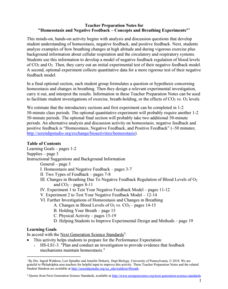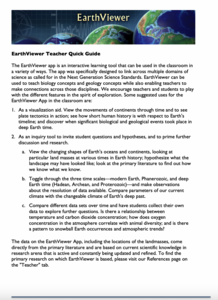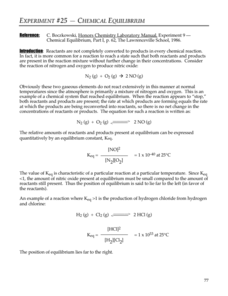Physics Classroom
Momentum
Interactive emphasizes understanding magnitude of momentum vectors depends upon mass and velocity, while the direction of the vector only relates to the direction of movement. As part of the larger series on momentum and collision, three...
Serendip
Food Webs, Energy Flow, Carbon Cycle, and Trophic Pyramids
The reintroduction of a species to an area doesn't always go as expected. Scholars learn about the reintroduction of wolves into Yellowstone National Park with a video, reading, and discussion questions. They complete a hands-on activity...
Serendip
Homeostasis and Negative Feedback – Concepts and Breathing Experiments
More asthma attacks happen at higher altitudes, but why? Scholars complete worksheets, learning about homeostasis and feedback related to breathing. Then, they work in small groups to experiment with breathing in limited amounts of...
Serendip
How Do We Sense the Flavors of Food?
We taste with our taste buds, so why do flavors change when we have a stuffy nose? Scholars experiment with taste testing while holding their noses and then while smelling. They record their observations in pairs and come together to...
Harvard University
Cosmic Questions
Scholars learn the stories of the universe with a unit study on the cosmos. They model the universe, learn about the relationship with the electromagnetic spectrum, understand the big bang theory, and debate the existence of life on...
Princeton University
A Teacher's Guide to the Universe
Astronomers only observe four percent of the universe as the rest hides in darkness. The size, shape, and movement of the universe are the focus for an long-term high school unit. Its 43 lessons include hands-on experiments, direct...
Howard Hughes Medical Institute
Stickleback Evolution Virtual Lab
How quickly do animals evolve? Can comparing different samples of the same fossil answer timeline questions? Scholars use virtual labs to examine fossils and learn about stickleback evolution. They compare pelvic morphology in lakes...
Serendip
Get the Lead Out!
Around 500,000 children under the age of six suffer from elevated levels of lead in their blood in the United States. Scholars apply their knowledge about lead to a fun game. As they correctly answer questions, they move their pieces...
Serendip
Mitosis and Meiosis Card Sort
Cells divide by one of two processes, either mitosis or meiosis. Scholars sort cards into two sets, one representing each type of cell division. Then, they sequence the cards demonstrating an understanding of the movement of chromosomes.
Biology Junction
Strawberry DNA
Humans eat around 93,205 miles of DNA in an average meal. Scholars learn how to extract DNA from a strawberry using a presentation. It walks through each step and explains why the process works. Comprehension questions encourage...
Howard Hughes Medical Institute
Classroom Activities: EarthViewer
The spot you are standing in right now—how did it look 2,000 years ago, one million years ago, or even four billion years ago? Scholars use a model of Earth throughout history to learn about continental drift, climate change, changes in...
Howard Hughes Medical Institute
EarthViewer Climate Guide Activity
What did Earth look like 4.5 billion years ago, and what was the climate like then? Scholars explore a view of Earth throughout history. They observe continents moving, temperatures fluctuating, and huge changes in ecosystems. A activity...
Physics Classroom
Component Addition
Learn to analyze vector addition on graph paper through multiple levels of practice problems. Pupils begin with two component addition and move through three and four components to prove mastery as one part of a series on vectors and...
Pingry School
Determination of Molar Mass by Boiling Point Elevation
Francis Raoult discovered the change in boiling points of solutions varies by the number of particles in the solution. Scholars apply the concept to determine the molality of a solution based on the change in boiling point. They use an...
Howard Hughes Medical Institute
Look Who's Coming for Dinner: Selection by Predation
What happens when a new predator comes to town? Learners analyze an experiment that studies the effect of predation on selection. They use real data to draw conclusions about the impact a new predator has on a prey species.
Pingry School
Determination of the Molar Mass of an Unknown Acid
Acids and bases have a love-hate relationship. They balance each other so nicely, but they are complete opposites! Learners use these concepts and titration to calculate the molar mass of an unknown substance. The experiment document...
Pingry School
The Alchemist's Dream – Copper into "Gold"
Many scientists attempted alchemy for hundreds of years before a full understanding of metals became clear. Scholars take a penny and, through two different chemical reactions, make it appear to turn into silver and later gold. They...
Pingry School
Gas Pressure and Temperature Relationship
Humans tend to huddle together when cold and move around more when warm, but do gas particles follow the same pattern? Scholars use a temperature probe, a pressure sensor, and air to study the relationship between temperature and gas...
Pingry School
Synthesis of an Insoluble Ionic Salt: A Stoichiometry Experiment
Challenge young scientists to design their own experimental procedures. They write the procedure for properly preparing two grams of a water-insoluble ionic salt. To finish, they perform the experiment and collect data to prove their...
Pingry School
Chemical Equilibrium
We know about the light spectrum, the age spectrum, and sound spectrum, but do chemical reactions also occur on a spectrum? Young scientists experiment with partial reactions on a spectrum and observe the color changes. Then, they...
Pingry School
Solubility Product of an Ionic Compound
How do scientists determine when a solution is fully saturated? Scholars address the topic as they observe patterns of precipitation in various concentrations of ions. Using a well plate, pipette, and common chemicals, they collect data...
Pingry School
Comparing Activities of Selected Metals
Don't overreact! A simple experiment demonstrates chemical reactions as scholars mix chemical solutions and metals in a large well plate. They note all changes to the metals, solutions, precipitate, colors, and more. A full data table...
Pingry School
The Gelation of Guar Gum with Borax
Some of kids' favorite toys are the products of science experiments. Scholars follow precise measurements to mix and create their own slime and Play-Doh. They observe the changing textures and the chemical reactions throughout the...
Pingry School
Determination of the Percent Hydration and the Simplest Formula of a Hydrate
Does the crystal structure of a hydrated solid determine the proportion of water absorbed, or does the application of heat change the absorption? Scholars experiment with both variables to determine the answer. They add their collected...

























